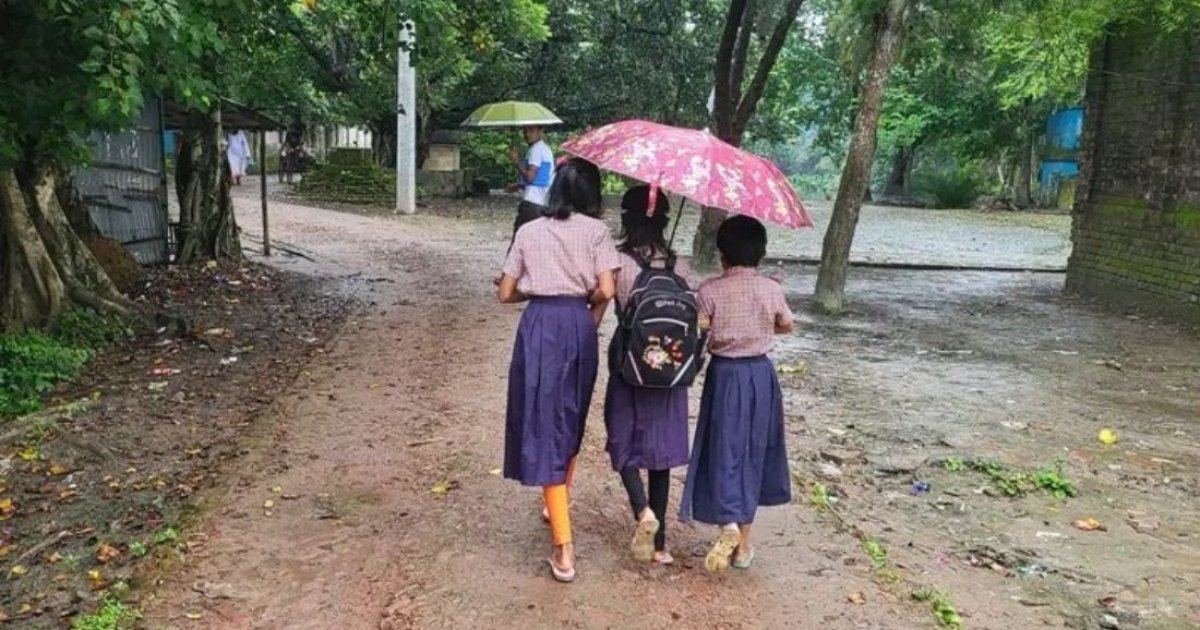One girl who gets married before turning 18 in Bangladesh is one too many. A girl who does not complete secondary education in Bangladesh is also one too many. An adolescent girl suffering from violence at home is definitely one too many.
Bangladesh joined the global community in observing the International Day of the Girl Child 2025 on October 11. I want to speak from the heart to honour the extraordinary strength, leadership, and courage of every girl across Bangladesh.
From urban classrooms to remote villages, girls who rise, speak up, and lead change even in the face of unimaginable odds inspire us every single day.
Under the theme “The Girl I Am, The Change I Lead: Girls on the Frontlines of Crisis,” Unicef celebrates and honours girls as active agents of change — not victims, but visionaries shaping a better tomorrow.
Their voices, ideas, and leadership are not just valuable; they are essential in overcoming the multifaceted crises threatening their future — from harmful social norms, unacceptable levels of violence, poverty, and climate shocks.
Globally, adolescent girls face significant hurdles often rooted in deep-seated discrimination and poverty. Over half of adolescent girls aged 10 to 17 live in poverty. Despite progress (such as illiteracy among adolescent girls and young women has dropped from four in 10 in 1995 to one in 10 today), far too many girls are still denied the chance to grow and to believe that their dreams matter.
In Bangladesh, girls’ participation in science and technology in secondary and higher secondary levels remains low, only 10-17%, a reality that limits their economic empowerment and ability to participate in a rapidly evolving digital world.
Sadly, behind every statistic is a child with dreams deferred, a young girl whose potential Bangladesh cannot afford to lose. During this important stage of life, girls face multiple risks like child marriage, early pregnancy, gender-based violence, and limited access to sexual and reproductive health care — challenges that not only steal away their childhood and hope, but that are too often life-threatening.
Violence — at home, in public, or online — remains an unacceptable and persistent threat. Data shows that too many adolescent girls, especially those aged 15 to 19, endure physical and emotional violence, hidden wounds that scar their confidence and limit their horizons. These are not just violations of rights; they are violations of childhood itself.
Mental health is another silent crisis and an area of grave concern for adolescent girls. A recent survey reveals that 12% of married and 9% of unmarried adolescent girls show moderate depressive symptoms in Bangladesh, a reminder that too many girls are struggling in silence and need urgent mental health and social protection services tailored to their realities.
Parents are insufficiently informed of the isolation, the mental health impact that is increasing with online bullying and abuse. We must listen, respond, and stand by them with compassion and care, ensuring that they are not alone.
And yet, amid these challenges, every day, we come across inspiring stories of girls in Bangladesh leading change. Girls who are active in organizing community relief efforts, leading student initiatives, speaking up against injustice, and supporting their peers in demanding equality.
These girls are the frontliners. They do not wait for change; they are the change. They are confronting crises with courage, compassion, and creativity — creating solutions and demonstrating resilience. These stories of strength deserve greater recognition.
Adolescent girls often remind us how clearly girls across Bangladesh understand what changes are needed to advance their rights and ensure their participation.
A girl named Disha thoughtfully reflected in a consultation during the International Day of the Girl about what she had learned regarding existing laws on child protection, cyberbullying, and gender — based violence.
She flagged that many girls like her are still unaware of these laws. She emphasized that the government must take action to make such information easily accessible to all. She also pointed out that, with so many people now connected to the internet, it would be far more convenient for girls to access information through digital platforms rather than having to visit government offices or health centres.
Our call to action in Bangladesh is clear: Please amplify girls’ voices and translate their priorities into targeted and real actions, real enforcement. Governments, communities, and development actors can do more to create safe, inclusive spaces free from violence, providing mental health counselling services, and ensuring that laws protecting girls are not just written but enforced.
Resources need to be channelled to girl-led organizations for nurturing the leadership and participation of girls. It is crucial to remove the barriers that hold girls back by equipping them with awareness of rights, skills, and confidence to lead, learn, and thrive in a rapidly changing, technology-driven world.
Let us celebrate every girl — her courage, her dreams, and her power to lead change. Let us open the doors to the architects of our shared future and ensure that their voices echo at every table where decisions about their lives are made.
Rana Flowers is Unicef Representative in Bangladesh.



